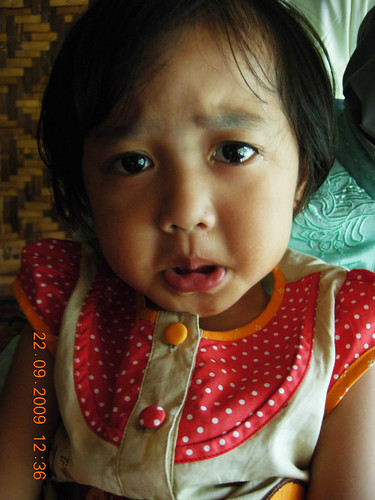"Happiness isn't the only acceptable emotion." ~ Crystal Lutton
 |
| Image credit: d listy |
But do you ever need a good cry? Even if someone cannot "fix it"?
I do. There are times when my children do, too. After years of refusing to let my children cry it out, though, I realized that I was falling into my own version of seeing happiness as the only acceptable emotion. I didn't want them to cry or be upset, and I felt as though allowing them to cry was wrong somehow. I wanted them to be happy all the time. It was so ingrained that I began to inadvertently communicate the idea to them that they *had* to be happy, even when that was unrealistic and inauthentic.
The truth is that all of us get hurt or disappointed sometimes. There are many ways to express big emotions, sure--using our words, art, dances, writing. Sometimes, though, we just need that pressure valve release of a good cry.
I have heard from some very dear mamas recently who have been deeply burdened with feelings of guilt that their children cry and that they can't make it better. I want so much to hug them and tell them that it is OK. I absolutely do NOT advocate leaving children to cry in an effort to teach them to sleep, to self-soothe or anything punitive. I am not saying it is OK to callously ignore distress. But we won't always be able to prevent all crying on their part, and we should not try.
How does a compassionate parent handle crying?
* Listening. Making sure that they feel heard. Have you ever tried to pour you heart out to someone and wind up frustrated when they fired off solutions without fully hearing you?
* Empowering. When we do offer solutions, allow them to be a part of fixing the situation. Instead of swooping in to rescue, offer ideas and support in carrying them out, but make sure that they are also a part of it. This might look like helping them with a script and then standing with them as they confront someone.
* Offering comfort. Do they need a hug? To be held? Our presence near them? Time to themselves?
Mamas, you are not failing your children somehow if they cry and get upset. You are not failing them if you cannot always fix the problem. Just continue to listen, to empower them to take part in their own solutions and let them know you care. Your love and support will allow them to take these times of distress and emerge stronger, more deeply connected and full of joy.

This is so hard for me too. I've also noticed something I ask my children too frequently is, "Did you have fun? Are you having fun?" etc. As if "fun" is the highest goal to achieve. Happiness and fun - yes, we want it for our kids - so badly. But that's just not life. And I really agree with this message - they have to know it's o.k. to have strong emotions, to feel sad and other things, to not always have fun, they don't always have to be happy. Such an important message. Maybe one that I need to learn first.
ReplyDeleteI so agree. Emotions can be our guide to understanding what needs are fulfilled or lacking. Instead of shutting it up... listen. What are those emotions telling us about ourselves or our children?
ReplyDeleteThanks in large part to your influence, I am handling my reactions to my toddler's emotions much better. My toddler has intense emotions and it has been hard for me to just relax and accept that her emotions are hers and do not affect me. My hubby has had to be mr. mom due to me being on bedrest for my pregnancy and no one has been by to help us, and he has been struggling with our toddler's emotions much more. I simply cannot seem to help him to understand that her emotions are her own, and he gets so angry if she is anything but compliant and pleasant. :-/
ReplyDelete